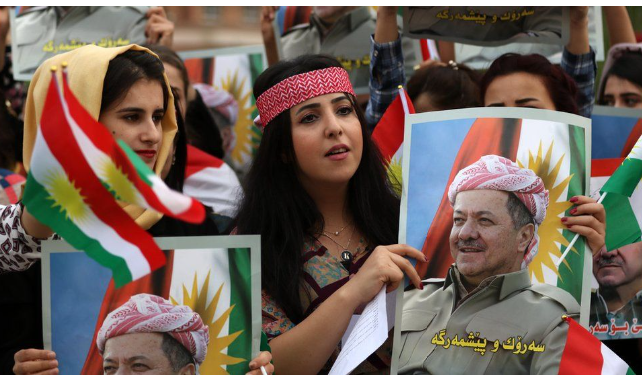In a bold attack last week, Iran targeted the heart of the Kurdish capital of Erbil, Iraq, launching ballistic missiles that struck the residence of prominent businessman Peshraw Dizayi. The attack claimed the lives of Dizayi and his infant child while wounding others.
The Iranian missile attack was carried out under the false pretext of targeting “Mossad espionage bases” within Erbil, mirroring the excuse Tehran used in March 2022 to strike the residence of Kurdish businessman Sheikh Baz, the CEO of KAR Group, the largest domestic energy company in the Kurdistan Region. Investigations by both the Kurdistan Regional Government (KRG) and the Iraqi government found no evidence supporting Iran’s claim.
Beyond brutal acts of violence, the Iranian missile attack on Erbil was a calculated blow to the heart of Kurdish aspirations and to America’s sole reliable ally in a volatile region. This bold escalation sends a chilling message to the KRG regarding the expendability of its alliance with the West, pushing Erbil toward neutrality or realignment with the pro-Iranian camp in Iraq.
How long the Kurds can endure Tehran’s pressure and Washington’s perceived indifference is a crucial yet uncertain question. A deep fissure of mistrust runs between Erbil and Washington, widened significantly by the U.S. response to the March 2022 Iranian missile attack. While Tehran targeted a site within proximity to the American consulate, a State Department spokesperson downplayed the incident, stating that they saw “no indications the attack was directed at the United States.” And the Biden administration’s response to the new missile attack is not entirely different.
While the Biden administration might downplay the Iranian attack on Erbil by arguing it didn’t directly target U.S. facilities or interests, the strike undeniably hit a nerve. It aimed at the very core of America’s most lauded state-building project in the volatile Middle East, a model often held up as an example for others. The reputational cost and the geopolitical consequences of not defending Erbil shouldn’t be taken lightly by Washington.
Defying financial chokeholds from Baghdad and military pressures from Iran and Turkey, Erbil has blossomed into a beacon of progress. Modern mega-projects like the Empire Building, bustling with Western cafes and restaurants, stand as testaments to its thriving economy and welcoming investment climate. These symbols of Kurdish progress and modernization, painstakingly built under the U.S. security umbrella, are now under direct threat.
Pro-Iranian forces in Iraq are exerting pressure on Erbil from various angles. Shiite militia drones frequently target Erbil’s international airport, disrupting essential travel and trade links. Baghdad has also weaponized the judiciary, targeting KRG institutions and the oil sector with politically motivated rulings. And perhaps most crippling, the Iraqi government has withheld the KRG’s rightful share of the federal budget for two years, leaving Erbil financially paralyzed.
Amidst this relentless pressure, Kurdish leaders feel abandoned by their longtime ally, the United States. They believe Washington wields considerable influence over Baghdad and could press for a resolution to the longstanding oil, territorial and financial disputes that plague the relationship.
Amid escalating conflicts and rising anti-American sentiment in the Middle East, the strategic value of Kurds might once again increase. But will the U.S. persist in viewing Kurds as temporary strategic tools, or will it establish a more enduring and sustainable partnership?
Historically, the U.S. has relied heavily on Kurds as valuable allies against regional adversaries. This transactional approach has come at a cost. Repeatedly abandoning the Kurds when their immediate strategic value diminishes has not only eroded America’s image as a reliable partner but also left the Kurds vulnerable to exploitation by Baghdad and by regional powers like Iran and Turkey.
The U.S. ultimately faces a critical choice: prioritize immediate interests and risk alienating future allies, or invest in building genuine partnerships grounded in mutual respect and long-term commitment. The Kurds, and the broader Middle East, deserve more than just temporary utility.
Yerevan Saeed is the Barzani Scholar for Global Kurdish Studies at the School of International Service, American University, this is an excerpt from his opinion piece published by the Hill.
Follow our English language YouTube videos @ REAL TURKEY: https://www.youtube.com/channel/UCKpFJB4GFiNkhmpVZQ_d9Rg
And content at Twitter: @AtillaEng
Facebook: Real Turkey Channel: https://www.facebook.com/realturkeychannel/
